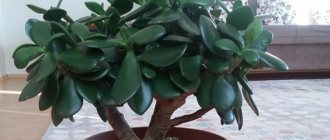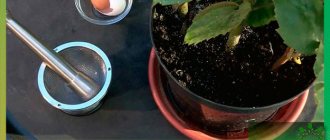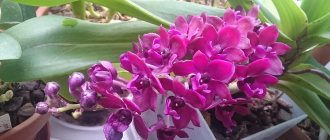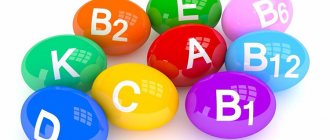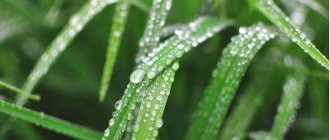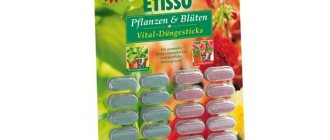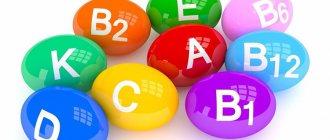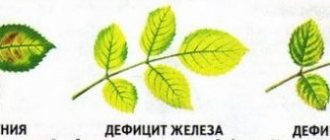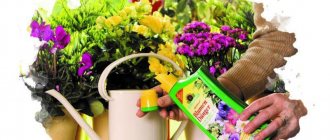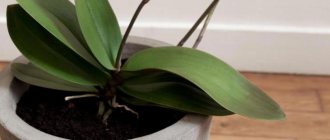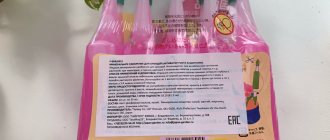Vitamins are just as important for plants as they are for humans. The only difference is that the plant is adapted to independently synthesize vitamins for itself. However, this sometimes takes a lot of energy, which the plant body could use for active development, flowering, setting and ripening of a beautiful, high-quality harvest. Of course, sufficient balanced nutrition at each stage of the life cycle of any crop is important. However, fertilizers are not exactly vitamins for plants, as it may seem to new plant growers. If, in addition to basic nutrition, you give the plant an additional dose of easily digestible vitamins and amino acids, it will save energy on their synthesis, directing it to growth, strengthening the immune system, increasing productivity or enhancing decorative properties.
How to recognize that a plant requires vitamin supplementation?
A lack of vitamins and microelements does not allow plants to reveal their potential, no matter how ideal the conditions are. You can help plants, at least domestic ones, with the help of simple pharmaceutical products. The main thing is to know when to stop and not get carried away, so as not to give your green pets an excess of vitamins and microelements, or, simply, hypervitaminosis, when the plants begin to wither and get sick. It is enough to add a weakly concentrated vitamin solution with watering once every three weeks. Signs of vitamin deficiency include:
- Thinning and weakening of stems.
- Unnatural stretching and deformation of the plant.
- Slowing down or completely stopping growth.
- Lack of flowering.
- Chlorosis
What are water-soluble vitamins for?
Water-soluble vitamins are used to treat a variety of deficiency conditions, including:
- Scurvy;
- Charcot-Marie-Tooth disease;
- Fragile X syndrome;
- Macular degeneration;
- Neural tube defects;
- Pellagra;
- Prevention of peripheral neuropathy;
- Take-take;
- Wernicke's encephalopathy.
Pharmacy vitamins to help the grower
As for humans, ascorbic acid is very important for plants. Vitamin C strengthens the immune system and increases resistance to disease, helps to avoid or treat chlorosis, is a regulator of water metabolism and metabolism, and affects growth. 1 tablet per liter of water for irrigation is enough. You can use ampoules, maintaining a similar concentration of the final irrigation solution. B vitamins for plants are stimulants of metabolism, and also have a beneficial effect on the development and condition of the root system (healthy roots - healthy and above-ground parts). Wherein:
- Vitamin B1 is a growth stimulator that also increases the stress resistance of plants. 1 ml of solution for injection should be diluted in 1 liter of water for irrigation.
- Vitamin B3, or nicotinic acid, is an effective resuscitator, first aid for severely weakened, stunted, dying plants. The proportions are the same - 1 ml per 1 liter. In addition to resuscitation measures, you can add vitamins B1 and B6.
- Vitamin B6 is an immune stimulant and a “savior” of weakened and defective flowers. 1 ml per 1 liter of water.
- Vitamin B12 – stimulates chlorophyll synthesis, photosynthesis and metabolism, activates growth. The proportions for the solution are the same.
Functions of water-soluble vitamins
Water-soluble vitamins play an important role, namely:
- Protect cells from damage.
- Produce collagen, a protein involved in wound healing, maintaining the structure of muscles, bones and skin.
- Increases immunity.
- Generate energy to meet the body's daily needs.
- Promote the formation of red blood cells.
- They ensure the transport of oxygen throughout the body for the smooth functioning of organs.
Let's look at the functions of each water-soluble vitamin.
- Vitamin C or ascorbic acid. It is essential for the synthesis of red blood cells and collagen. Promotes the absorption of iron (iron of plant origin). Stimulates the body's defense against infections.
An antioxidant that fights the effects of free radicals and prevents a large number of diseases and premature aging of the body. Plays a role in the synthesis of certain hormones and in maintaining tissue structure (elasticity and stability). Improves detoxification, especially liver.
Eating fresh fruits and vegetables with every meal helps meet the recommended daily intake of vitamin C.
- Vitamin B1, thiamine. The main function of this vitamin is to release energy from carbohydrates, so it plays an important role in the body. It is also important for the proper functioning of the central nervous system (stimulates cerebral functions, memory maintenance) and muscles. B1 is involved in the oxidation of alcohol, which is difficult for our body to get rid of on its own.
Vitamin B1 is not retained in the body. After fulfilling its role, everything that is not used is broken down and excreted through the kidneys in urine. Lack of vitamin B1 is the cause of the disappearing disease - beriberi.
- Vitamin B2, riboflavin. Participates in the metabolism and absorption of nutrients (proteins, lipids and carbohydrates) to convert them into energy. Necessary for tissue renewal. Important for healthy skin, hair and nails, as well as vision. It is excreted in urine, which may have a yellow tint.
- Vitamin B3 or vitamin PP. Indispensable for the absorption of proteins, lipids and carbohydrates. Participates in energy production. Necessary for growth. Its deficiency is associated primarily with malnutrition. Alcoholism, liver cirrhosis, malabsorption syndromes, diabetes, and hemodialysis can contribute to it. Vitamin B3 deficiency is the cause of skin diseases (pellagra) and digestive disorders.
- Vitamin B5, pantothenic acid. This vitamin is part of the immune system because it helps the body defend against infections. It is also involved in the metabolism of fats, proteins and carbohydrates. Keeps skin and mucous membranes in good condition.
- Vitamin B6 or pyridoxine. It is necessary for the proper use of proteins and promotes the absorption of magnesium, which is important when tired or stressed. B6 helps the nervous system function properly and is involved in most of the body's biological reactions. By acting on hormones and neurotransmitters (messaging from one neuron to another, such as serotonin and dopamine), it affects mood.
- Vitamin B8 or biotin, better known as vitamin H. Participates in nutrient metabolism and the synthesis of fatty acids and amino acids. Plays a role in the formation of vitamins B9 and B12. Protects skin, nails and hair (reducing seborrhea and therefore hair loss). This vitamin combines with certain enzymes associated with the formation or use of carbon dioxide, so it functions as a coenzyme.
- Vitamin B9, folic acid. Participates in DNA synthesis, therefore it is necessary for any process of cell reproduction, and therefore for growth. Involved in the formation of red blood cells. Prevents some forms of anemia.
- Vitamin B10, para-aminobenzoic acid (PABA). Scientists excluded it from the group of B vitamins and classified it as a vitamin-like substance. Its properties have not been fully explored. However, it is known that B10 reduces the harmful effects of ultraviolet radiation on skin and hair, normalizes the functioning of the thyroid gland and reduces cholesterol levels in the blood, and normalizes intestinal microflora.
- Vitamin B12. Its other name is cobalamin because it contains cobalt. This vitamin catalyzes the oxidation of fats, proteins and carbohydrates. Participates in many biochemical reactions of the body, in particular in the synthesis of proteins and, consequently, in the mechanisms of muscle mass development. It is necessary for the formation of red blood cells, therefore it has an antianemic effect.
TOP sales - the best vitamin concentrate for plants Hesi SuperVit
Using regular pharmacy vitamins is not always easy, because you can make a mistake with the dosage. If you have the slightest doubt and want complete confidence that the stimulant will work as it should without causing harm, you should pay attention to the proven version of Hesi SuperVit super concentrate. The bottle is small - only 10 ml, but from them you can prepare 650 liters of a solution that will contain 15 vitamins and 10 amino acids that improve the absorption of vitamins and fertilizers from soil or nutrient solution. Just 1 drop is enough to prepare 5 liters of solution for root and foliar treatment. After this, the price is 1181 rubles. no longer seems tall. The stimulant can be used throughout the entire life cycle of plants grown in soil and hydroponics, helping them to demonstrate intensive growth, abundant bud formation and high yield. The quality of the fruit also improves - just read the reviews of plant growers.
Pharmaceutical preparations with a stimulating effect for plants
Aspirin is very good for stimulating plant nutrition. Acetylsalicylic acid strengthens the immune system, helps plants resist fungus and pests, gives a boost of energy to weak and sick plants, and also helps to “wake up” after winter dormancy. Dosage: ¼ tablet per 2 liters of water. Succinic acid is a stimulator of immunity and growth, a protector for roots. The drug helps the root system recover from rot and protects against pests. A solution of ¼ gram of acid per 1 liter of water is used for irrigation, and for irrigation a 1% solution is used (1 g per 1 liter of water). Hydrogen peroxide is another resuscitator with disinfecting properties that blocks the development of pathogens and harmful insects in the soil. It can be used not only in emergency cases, but also for prevention, applied with watering or spraying. Proportions for solution: 2 tsp. drug per 1 liter of water. However, even for treatment, peroxide solution should not be used more than once a week. Glucose is a source of energy and one of the building materials in the synthesis of nutrients. Feeding plants with ready-made glucose for injection allows you to restore the plant when it loses turgor or after drought. If you bought 40% of the drug in ampoules, then 1 ml is dissolved in a liter of water, and if 5%, then 8 ml of glucose is required per liter of water. If the drug is in tablet form, then 1 tablet per 1 liter of water. the solution can be watered and irrigated. An aqueous solution of sodium thiosulfate allows you to remove harmful chlorine from tap water if it is difficult to settle the water for irrigation for 1-2 days. This is especially important for exotic plants that suffer greatly from chlorine. The concentrate is prepared at the rate of 1 ampoule of the drug (10 grams, 10%) per 150 ml of water, and then 1 drop of concentrate is diluted in a liter of water for irrigation. The concentrate can be stored in a closed plastic bottle in the dark for up to a year. Magnesia, or magnesium sulfate, is a source of magnesium, which is one of the important building blocks of chlorophyll and is very important for the normal functioning of roots. A solution of 2.5 mg of magnesium per 1 liter of water is used for watering plants with signs of chlorosis and in a generally depressed state. Ammonia will revive not only a person, but also a plant suffering from a lack of nitrogen and generally remaining in a sluggish, stunted, withering state. Ammonia disinfects the soil, having a detrimental effect on pests and fungi. Used for watering in the form of a solution in proportions of 1 tsp. ammonia per liter of water. A significant improvement in the condition of the plants is observed within a few days. However, you need to fight the temptation to continue in the same spirit due to the high risk of creating an excess of nitrogen in the soil - no more than a couple of times a month. Iodine tincture, although not included in the direct vitamins for plants, is also a good stimulator of growth and flowering, and also enhances resistance to adverse factors. 1 drop of ordinary pharmacy tincture of iodine is diluted in 2 liters of water. You need to water it very carefully - slowly, along the edge of the pot, so as not to burn the roots of the flowers. For 1 average plant, 50 ml of this solution is enough.
Castor oil, despite its origin (seeds of the poisonous castor bean plant), has a wide range of beneficial properties and is also useful to gardeners. Castor oil, used only during the flowering period, as well as special vitamins for plants (since the oil contains vitamins), stimulates abundant bud formation, as well as leaf growth. Plants become beautiful, lush, and healthy. The solution is prepared based on the proportions of 1 tsp. castor oil per 1 liter of water. Can only be used for watering. A weak solution of potassium permanganate, or potassium permanganate, gets rid of pathogenic flora and insect pests, and can be used periodically and for prevention with the function of additionally enriching the soil with potassium and manganese. To prepare a solution for watering, you need to dip the tip of a moistened toothpick in potassium permanganate powder, dip it in warm water (1 liter) and stir well until completely dissolved, then dilute this solution with water until it turns pale pink and water the plants. But you need to act very carefully so as not to burn the roots or acidify the soil too much.
What it is?
Every cell in the body has the function of converting amino acids, minerals and other compounds into proteins, hormones and enzymes. Some vitamins are among the compounds formed, so they are necessary for the proper functioning of the body.
Of the thirteen known vitamins, two groups can be distinguished:
- Water soluble. They dissolve in water and the body cannot accumulate them. For this reason, it is necessary to consume them daily. Excess is excreted through sweat and urine.
- Fat soluble. These vitamins dissolve in fat, accumulating in adipose tissue and in the liver. Excessive amounts can be harmful to health, so be careful with dietary supplements and always consult your doctor.
In total, various foods contain the following water-soluble vitamins:
- Thiamine (B1);
- Riboflavin (B2);
- Nicotinic acid, nicotinamide (B3, PP);
- Pantothenic acid (B5);
- Pyridoxine (B6);
- Biotin (B7, H);
- Folic acid (B9);
- Cobalamins (B12);
- Orotic acid (B13).
And only vitamin B10 (para-aminobenzoic acid) is synthesized in the human body. Let's figure out what role each of them plays.
What fertilizer stimulates flowering
To prevent the Decembrist from “falling asleep” and stimulate its abundant flowering for the New Year and Christmas, in the summer it should be fed with complex fertilizer for indoor flowers. Finding such feeding will not be difficult. It is sold in almost any store that sells indoor flowers. It is recommended to use this fertilizer for the Decembrist in half the dose. Fertilizer should be applied monthly from June to August.
How to give money in an unusual and festive way: 5 ideas that are easy to repeat
Who lived the best under the USSR? What did Soviet residents envy when they arrived in Georgia?
“Total Dictation” will be available in English for the first time
You can also stimulate the Christmas flowering of Decembrist in early - mid-December by placing it in a dark place for 12-14 hours. Experienced lovers of indoor flowers simply cover the plant with a thick cloth that does not allow the penetration of either artificial or natural light. In the darkness, the Decembrists begin buds.
What other fertilizers are used for fertilizing?
Thus, Decembrist flowering should be stimulated with the help of formulations containing large amounts of phosphorus and potassium. But, of course, this flower, like any other, requires other microelements for good development.
Prayers that summer residents like. Words that help you get a harvest
Christopher Hart talks about the idyllic village of Oppède-Le-Vieux and its surroundings
47-million-year-old fly found with belly full of pollen
This applies, for example, to nitrogen. When introduced into the soil, this microelement stimulates the Decembrist to gain green mass. Nitrogen fertilizing will ensure the healthy appearance of the green parts of the Decembrist and their proper development. Strong shoots will bloom better later. Any organic matter can be used as a nitrogen fertilizer - infusions of mullein or bird droppings, herbal teas, etc. Of course, in this case, the fertilizer should be applied in half the dose.
You can use nitrogen compounds to feed Decembrist throughout the spring and summer. It is not prohibited to fertilize plants with nitrogen fertilizers in the fall. The Decembrist does not require nitrogen or any other fertilizers only after flowering. During this period, the plant rests and does not need feeding.
Brief conclusions
- Water-soluble vitamins dissolve in water and the body cannot store them. Therefore, they need to be consumed daily.
- They perform many important functions. For example, they promote the production of collagen, a protein involved in wound healing, maintaining the structure of muscles, bones and skin.
- True deficiency of water-soluble vitamins is not that common. It is typically found in anorexia, severe malnutrition due to chronic illness, alcoholism and nutritional imbalances.
- To preserve the maximum vitamins in food, certain rules must be followed during cooking.
Who should definitely take B12?
For an adult, the standard daily requirement for B12 is about 2.4 mcg. But it is worth remembering that this amount is only valid for those who are not subject to nervous shock and do not have bad habits or excessive stress. During times of stress, nicotine addiction, increased workload and fatigue, this figure can increase in the range of 10 to 20%. In such cases, we advise you to choose foods that are rich in vitamin B12 and contain it in large quantities. We have listed cases in which the need to take the substance increases:
- for those who are actively involved in sports, especially professional athletes;
- if your job involves heavy physical activity;
- undergoing rehabilitation after alcohol addiction;
- pregnant and lactating women;
- during puberty in adolescents
- children in the period of active growth;
If you belong to any category from this list, you should be especially careful to ensure that your body receives all the necessary substances. A diet that includes healthy, vitamin-rich foods, as well as proper intake of medications prescribed by your doctor, is a guarantee of your impeccable health, beauty and youth for many years.
Origin of the Decembrist
Although this houseplant belongs to the cactus family, in the wild it does not grow in the desert. The flower's homeland is Brazil, where it can be found in shady, humid forests. In nature, Decembrists grow on trees like epiphytes. In indoor conditions, this plant usually blooms at the end of December. Because of this, in Western countries it is even called the “Christmas cactus.” Some types of Decembrist can bloom at other times. In any case, the methods of caring for all varieties of this indoor flower are almost the same.
How to preserve vitamins when cooking
Different cooking methods bring out flavor and aroma and also make food more digestible, especially the fiber in fruits and vegetables.
However, cooking can destroy vitamins and minerals. How to preserve them as much as possible?
- Vitamin C
afraid of heat, air oxygen and moisture. Therefore, it is preferable to consume raw fruits and give preference to quickly cooking vegetables with a minimum amount of water. Don't soak them for too long.
- Vitamin B1
. Along with vitamin C, it is the most unstable vitamin. It is sensitive to heat and moisture. Ideally, foods containing it should be eaten raw and fresh.
- Vitamin B2
. This is the most sensitive vitamin to light. For example, milk can lose up to 50% of vitamin B2 after just 2 hours of exposure to light. Although it is heat-resistant, avoid boiling pasteurized, sterilized or UHT foods. Likewise, avoid cooking food for too long.
- Vitamin B5
. It is not very sensitive to light or oxygen; humidity and heat pose a danger to it. When cooked in water, some of the B5 is lost, so avoid overcooking the food.
- Vitamin B6
. This is a fragile vitamin that is destroyed by exposure to light. Industrial processing, such as refining, also reduces the amount in food. Therefore, food should be kept away from light, not soaked in water for too long, and short cooking should be preferred.
- Vitamin B9
. It keeps better in an acidic environment, so add a little vinegar to the cooking water.
Let us add that one of the most preferred processing methods for many products is steaming.
Where should the flower be in the room?
Of course, in order for the Decembrist to develop and bloom well, it must not only be fed on time. The flower should be properly cared for. First of all, for the Decembrist you need to try to choose the most suitable place in the room.
Since this plant naturally grows in forests, it does not tolerate direct sunlight very well. It is better to place the pot with Decembrist on the western or eastern window of the house. You can also place the flower on the south window, but in this case it is better to shade it, for example, with a curtain.
Side effects of water-soluble vitamins
Although cases of overdose of vitamins in this category are quite rare, the following symptoms may occur:
- Anxiety;
- Nausea;
- Itching;
- Rash;
- Severe allergic reactions;
- Weakness;
- Headache;
- Diarrhea;
- Dyspepsia (stomach upset);
- Joint pain.
Check with your doctor before taking medications containing vitamins. Do not change the dosage or frequency of use without consulting a specialist.
